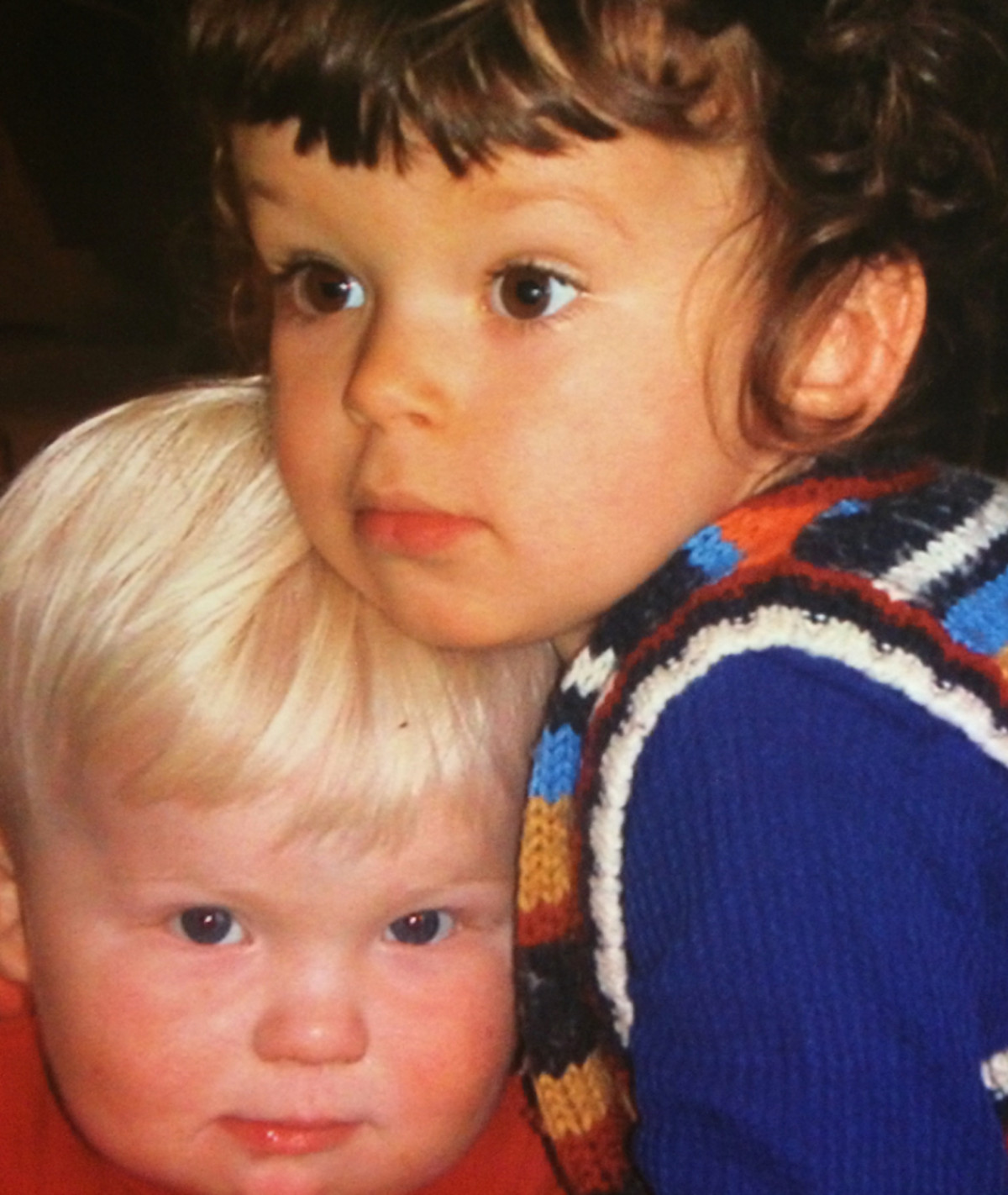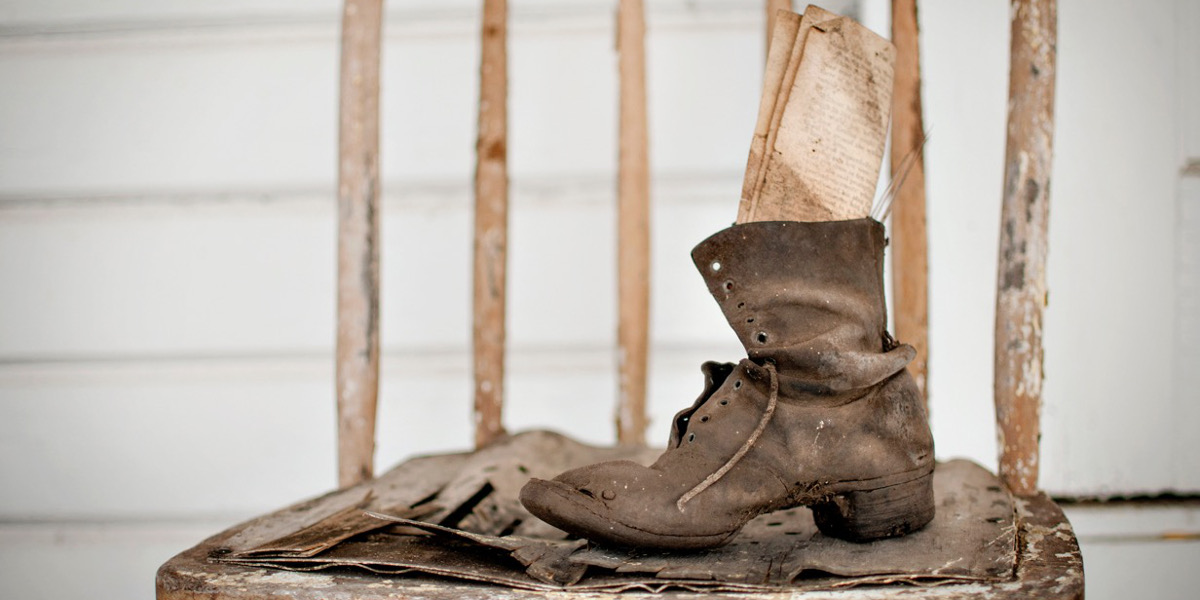History
This is a story of confluence, how fertile land, impassioned farmers, creative fermenters, good neighbors, great timing, community support and ripe apples all converged to sustain a small family farm and bring Finnriver Farm & Cidery to life. While our farm is remote, we are honored to be on the forefront of the Pacific Northwest cider revival. We are committed to fermenting a vision of good land, renewed rural community and a vibrant food culture.
Finnriver was founded in 2008 by partners Eric Jorgensen and Keith and Crystie Kisler.
Before the Kislers found Finnriver, they were searching far and wide for a place to set down roots and grow a grounded life together. Farming was in Keith's blood and in Crystie's wildest dreams. While she was riding subways in a big city back east as a girl, he grew up riding tractors in the wheat fields of eastern Washington. Keith knows the names of four generations of his ancestors who lived with the cycles of seed, soil, work, and weather. Henry and Anna, his great-grandparents, carried their farming heritage from the Volga River region of Russia to the Columbia River basin of Washington, where branches of the Kisler family continue to farm today.
When their search for land and livelihood brought them to the Olympic Peninsula, they discovered the historic seaport and artful town of Port Townsend, full of boats, beauty and creative, conscientious people. They settled down, befriended some folks and two of them, skilled farmers Kate Dean and Will O'Donnell, became their business partners in 2004.
Together, the two families purchased an organic blueberry farm in Chimacum's Center Valley from Elijah (Lige) and Kay Christian, who have since become mentors and neighbors. It was Lige and Kay who began the stream restoration work on the land, dug the wells, put up the barn and planted all 2,000 blueberry plants.
 The partners re-named the farm Finnriver, after Kate and Will’s son Finn and the Kislers' first son River, a name that honored their family farming aspirations and the fish in the watershed.
The partners re-named the farm Finnriver, after Kate and Will’s son Finn and the Kislers' first son River, a name that honored their family farming aspirations and the fish in the watershed.
The name was also inspired by this old Irish legend:
As a young lad, Finn MacCool went to live with a wise old poet who had spent seven years trying to catch the sacred Salmon of Wisdom, which lived in a pool on the river. It was foretold that whoever ate this salmon would gain all the knowledge in the world. Eventually the master caught the great fish, and told the boy to cook it for him, but to take care not to eat it. While cooking the fish young Finn burned his thumb and instinctively put the finger in his mouth. Finn thus gained the salmon’s wisdom and used it to lead his people and bring peace to the land.
Having purchased the 33-acre organic blueberry Christian farm, the families focused on growing organic fruit, vegetables and grains, and searching for a small farm model that would support their families, serve the community and sustain the land. Then one day Lige brought over a bottle of hard cider he’d fermented from the apples out back. It was a delightful, dry, effervescent discovery. And, for the farming families, it sparked an idea.
When the Dean-O'Donnells moved on to pursue other ventures, the Kislers encountered the financial challenge of keeping the farm intact as well as the practical one of needing more hands in the ground to get it all done.
Working together with Jefferson Land Trust and the Jefferson Landworks Collaborative, they took local low-interest loans from generous farm allies, agreed to place protective conservation easements on the farm, and developed a plan to embark on cider production.
The Kislers then partnered with friend and mathemagician neighbor Eric Jorgensen in 2008 to revive the craft of artisan ciders and to operate the newly-formed Finnriver Cidery. Eric's life journey took him from the Midwest to the Northwest with adventures as raft guide, environmental educator and then school teacher in the nearby rural community of Quilcene. Along the way he married writer and all-around great lady Abby Jorgensen and with their two daughters, they settled down to homestead on a beautiful ridge above Chimacum's farmland. The early days of the cidery involved Keith and Eric up many a late night, either poring over spreadsheets or leaning over fermentation tanks.
They also put out the call to find another pair of farmers to help make it all grow and heartily welcomed back Janet Aubin, a county native, and her partner Jeff Horwath, who now operate the Finnriver fields and food production as a separate but interconnected endeavor.
Since those early days, Finnriver’s founders have grown into unique roles along with the farm, orchard, and cidery:
Eric has taken joy in the opportunity to work alongside former elementary school students who have been hired in various Finnriver roles. He is now the mathemagician, business manager, chief financial officer and staff banjo player. Keith works in operations, on the tractor and in the orchard throughout the year, as well as growing grain, and Crystie connects people to the farm through outreach and events. The three refer to themselves as Head, Hands and Heart and it is through their balanced partnership and the efforts of an outstanding crew that Finnriver has grown into a purposeful and passionate cider company.
In 2012, Finnriver began leasing the 50-acre former Chimacum Dairy, just three miles up the road from our original location, to plant organic cider apple trees. Working with visionary local investors, we made a plan to renovate and re-purpose this historic dairy into the Finnriver Orchard and to find partners to help showcase how organic agriculture, rural economy and ecological restoration could all thrive together.
The roots of the cidery began in friendship and farmland and now, with several thousand heirloom cider trees in the ground, farming and fermenting continue side by side on 80 acres of Chimacum Valley soils, on the north Olympic Peninsula of Washington state.
About Chimacum
Farming, we believe, is about what you eat, and what you drink. Since the first time Lige brought us his bottle of homemade cider, cider making in our barn has been a process of discovery— a blend of art, alchemy, ancient wisdom, farm ingenuity, scientific method, nature’s magic and adventurous experimentation.
From its unique geography, to the soils that sustain us, and the living history of the people who came before, we celebrate this ground and the people and stories that have come to life here through the generations. We offer this collection of history and images to honor the hearts and hands that have lived and worked this land.
GEOLOGY
Continental glaciers several thousand feet thick scoured this landscape over the last 100,000 years. Over time, episodes of ice, flood and erosion created the Chimacum valley. Then, as the land rebounded from losing the weight of the glaciers, Chimacum Creek found its present day outlet to Port Townsend Bay. Over the last thousand years, prairies and bogs thrived on the nutrients brought from the sea. Organic materials accumulated and decayed, forming peat soils and creating the fertile conditions now.
THE CHIMACUM PEOPLE
Chimacum Creek is named after the Chimakum, a Native American people known to themselves as Aqokúlo, who lived on the northeastern portion of the Olympic Peninsula through the mid-19th century and whose economy, culture and religion were based on salmon fishing. Their primary settlements were on Port Townsend Bay, on the Quimper Peninsula, and Port Ludlow Bay to the south. According to tradition, the Chimakum were a remnant of a Quileute band who had been carried away in their canoes by a great flood through a passageway in the Olympic Mountains and deposited on the other side of the peninsula. In 1855 the Twana and Chimakum, along with the Klallam, signed the Point No Point Treaty, which established a reservation at the mouth of the Skokomish River near the southern end of Hood Canal. One of the Chimakum signatories of the treaty was Chief Kulkakhan, also known as General Pierce. After this, most Chimakum people merged into the S’Klallam and Skokomish tribes, where their descendants still live today.
SETTLERS
From the early days of European settlement, in the early 1800s, much of the land in this area was operated for forestry and for agriculture, primarily dairy. William Bishop, Sr. was an early pioneer in the Chimacum Valley. He married, by Indian custom, a Snohomish Indian woman named Klastatute. They had three children and their son William Bishop, Jr. purchased this land in 1898, and went on to become a leading political figure and dairyman, with prize-winning Holstein cattle. Along with distinction in the Purebred Dairy Cattle Association “Hall of Fame,” Bishop was the first elected Native American to serve as a senator in the State of Washington and served multiple terms in the state House and Senate until his death in 1934. Senator Bishop married Madeline Ammeter in 1900 and they had three children. With the Senator’s passing, Mrs. Bishop managed the farm with her two sons until her own death in 1956, when the Bishop Dairy Farm was sold to B.G. and Gloria Brown.
THE CHIMACUM DAIRY
B.G. Brown was a young Marine from Kansas City who came to the Northwest during the Korean War when he was assigned to the Bangor and Indian Island bases. Gloria was raised in Port Orchard and Poulsbo. Her father worked in the shipyard in Bremerton but always kept milking cows. Gloria and Brownie dreamed of having their own dairy someday and first purchased the farm on Eaglemount (now Treekhawk Farms operated by their grandson Jason Olsen) and then moved the dairy operation to this farm in the center of Chimacum in 1956.
In addition to his career as a dairyman, Brownie served as County Commission for 20 years, where he advocated for the agricultural interests of Jefferson County with vision and true civic spirit. Gloria Brown operated the Chimacum Cafe and cooked there for many years, offering her classic cafe dinner of soup, salad and ice cream. The Browns had four children: Debbie, Barry, Brad and Jodi, who worked on the farm and at the cafe. Many family members lived on or nearby the farm and the Brown family ran the dairy operation for almost 50 years. From the four children, there were seven grandchildren and there are now over 17 great-grandchildren...and counting! The farm house and farm were a hub of family activities and holiday life for decades. Over time, pieces of the property were sold to the Fire Hall, the Post Office and the Chimacum Schools. Due to the unexpected deaths of B.G. and his son Brad Brown within a short period, and the economic struggles of the small dairy industry, the family had to sell the herd and the dairy closed in 2002. Members of the family still live and farm nearby and are keeping the stories and memories alive.
In 2009 the Jefferson Land Trust launched a ‘working lands’ initiative to preserve farmland in this region and made an agreement with Gloria Brown to place a conservation easement on these 50 acres, ensuring that the farm, prime soils and salmon-bearing creek would be protected forever.
Finnriver Cidery was born as partnership with neighbors Crystie and Keith Kisler and Eric Jorgensen. We sold our first hard cider in 2010 and were honored to be on the forefront of the Pacific Northwest hard cider revival.

